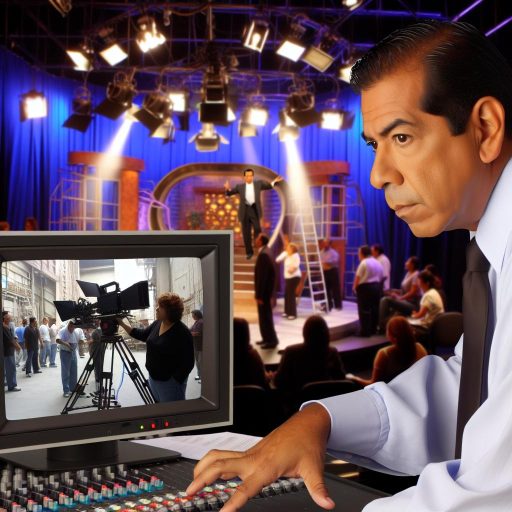Introduction
A media planner plays a crucial role in advertising and marketing.
They develop strategies to allocate budgets effectively across various media channels.
Their primary focus is to maximize reach and impact while staying within budget constraints.
Media planners analyze audience behavior, market trends, and competitor strategies.
This analysis enables them to create targeted campaigns that resonate with the desired demographic.
Understanding salary expectations is vital for aspiring media planners.
Salaries can vary widely based on factors such as experience, education, and geographical location.
Knowing these expectations can help candidates negotiate better offers and assess their career trajectories.
Salary insight also aids current professionals in evaluating their worth and planning future career moves.
Several factors influence salaries in the media planning profession.
First, experience level plays a significant role.
Entry-level media planners typically earn less than their more seasoned counterparts.
With years of experience, planners gain specialized skills and industry knowledge that command higher salaries.
Education also impacts salary potential.
Media planners usually hold degrees in marketing, communications, or advertising, which can enhance job prospects.
Advanced degrees or certifications in media strategy and analytics can further boost earning potential.
Geographic location contributes to salary differences as well.
Larger cities often offer higher salaries due to a higher cost of living and increased demand for skilled professionals.
For example, media planners in New York or San Francisco generally earn more than those in smaller towns.
Additionally, the type of employer affects salary ranges.
Transform Your Career Today
Unlock a personalized career strategy that drives real results. Get tailored advice and a roadmap designed just for you.
Start NowPlanners working for large advertising agencies or corporations often earn higher salaries compared to those in smaller firms or nonprofit organizations.
These distinctions underscore the importance of understanding salary expectations.
The media planner role emerges as both dynamic and rewarding.
By considering various influencing factors, potential planners can set realistic salary expectations throughout their careers.
Understanding the Role of a Media Planner
A media planner plays a crucial role in the marketing and advertising landscape.
Their primary function revolves around strategizing how to effectively promote a brand to its target audience.
This involves various responsibilities that ensure a brand’s message reaches its consumers through the right channels.
Definition and Key Responsibilities of a Media Planner
Media planners are professionals tasked with identifying the best media platforms for advertising campaigns.
They work closely with marketing teams to create comprehensive strategies that optimize advertising budgets.
Key responsibilities include:
- Conducting market research to identify target demographics.
- Analyzing consumer behavior and media consumption habits.
- Collaborating with clients to understand their goals and expectations.
- Developing strategic media plans that align with campaign objectives.
- Negotiating media buys with vendors and media outlets.
- Monitoring and evaluating the performance of media campaigns.
- Adjusting strategies based on performance metrics and insights.
Skills Required for Success in Media Planning
To excel as a media planner, professionals must possess a diverse set of skills.
These skills help them navigate the complexities of media strategies and client interactions effectively.
Essential skills include:
- Analytical Skills: Ability to analyze data and derive actionable insights.
- Communication Skills: Strong verbal and written skills facilitate collaboration with clients and teams.
- Creativity: Innovative thinking helps in developing unique media strategies.
- Negotiation Skills: Persuasive negotiation abilities are necessary for media buying.
- Attention to Detail: Precision is crucial for ensuring campaigns meet client specifications.
- Technical Proficiency: Familiarity with analytical tools and software is vital for data analysis.
- Project Management: Strong organizational skills help manage multiple projects and deadlines.
Overview of the Media Planning Process
The media planning process is a structured approach consisting of several distinct stages.
Each stage plays a vital role in ensuring the effectiveness of campaigns and involves careful execution.
The key stages of the media planning process include:
Research
Research serves as the foundation of effective media planning.
Media planners gather information about:
- Target audience demographics and psychographics.
- Market trends and industry benchmarks.
- Competitor media strategies and tactics.
- Consumer preferences regarding media channels.
Strategy Development
Based on research findings, media planners move to strategy development.
In this phase, they outline:
Transform Your Career Today
Unlock a personalized career strategy that drives real results. Get tailored advice and a roadmap designed just for you.
Start Now- Clear campaign objectives and key performance indicators.
- The most suitable media channels for reaching the target audience.
- The timing and frequency of media placements.
- Budget allocation across various media platforms.
Media Buying
Once the strategy is in place, media planners engage in media buying.
This step involves:
- Negotiating rates with media vendors to secure advertising space.
- Establishing contracts and ensuring transparency in agreements.
- Confirming placements and scheduling ads across chosen media.
- Overseeing the execution of the media plan to ensure compliance.
Monitoring and Evaluation
The final step in the media planning process involves monitoring and evaluating campaign performance.
Media planners need to:
- Track performance metrics against initial goals.
- Utilize analytics tools to assess consumer engagement.
- Gather insights for future campaigns and strategies.
- Provide clients with detailed performance reports and recommendations.
Understanding the role of a media planner is essential for grasping the intricacies of marketing campaigns.
Media planners leverage their skills and expertise to ensure effective communication between brands and their target audiences.
The media planning process encompasses thorough research, strategic development, effective media buying, and ongoing evaluation.
Each of these elements contributes to the success of advertising efforts, helping brands achieve their marketing objectives.
Factors Influencing Media Planner Salaries
Media planners play a crucial role in determining how companies communicate with their audiences.
Their salaries can vary significantly due to a variety of factors.
Understanding these factors is essential for both aspiring media planners and those already in the field.
Location
One of the primary factors influencing media planner salaries is location.
Different regions offer varying salary scales based on several determinants:
- Cost of Living: Cities with high living costs, like New York or San Francisco, usually offer higher salaries.
- Market Demand: Regions with a booming media industry, such as Los Angeles or Chicago, can provide higher salaries.
- State Taxes: States have different tax structures.
Experience Levels
Experience plays a significant role in determining a media planner’s salary.
The more experience one has, the higher the earning potential:
- Entry-Level: A new graduate or someone with less than two years of experience may earn a lower salary.
- Mid-Level: With three to five years of experience, media planners usually see a significant pay increase.
- Senior-Level: Planners with over five years of experience can command high salaries.
Education and Certifications
Education is another essential factor influencing salary.
The level of education achieved can impact compensation rates:
- Bachelor’s Degree: A degree in marketing, communications, or a related field is a standard requirement.
- Advanced Degrees: A master’s degree in business administration (MBA) or specific media studies can enhance job prospects.
- Certifications: Specialized certifications like Google Ads or Facebook Blueprint can bolster a planner’s credentials.
Industry Type
Different industries can offer varying salary ranges.
Media planners often find themselves in diverse sectors.
- Retail: Media planners in retail might earn a moderate salary.
- Technology: The tech industry usually pays higher salaries.
- Entertainment: The entertainment sector can also provide lucrative positions.
Company Size
The size of the company can heavily influence salary structures.
Transform Your Career Today
Unlock a personalized career strategy that drives real results. Get tailored advice and a roadmap designed just for you.
Start NowWorking for a startup versus a large corporation leads to different compensation models:
- Startups: Smaller companies often have limited budgets.
- Medium-Sized Companies: Medium-sized firms might offer competitive salaries.
- Large Corporations: Big companies typically provide higher salaries and benefits.
Job Function and Responsibilities
The specific roles and responsibilities assigned to media planners can influence their salaries significantly.
- Strategic Planning: Media planners involved in high-level strategic decisions generally earn more.
- Data Analysis: Planners focusing on data analytics and insights may command higher salaries.
- Client Management: Planners handling significant client accounts often see increased compensation.
Professional Development
Continuous learning and skill development can significantly boost earning potential.
- Attending Workshops: Participating in industry workshops can enhance skills.
- Networking: Building a robust professional network can lead to new opportunities.
- Taking Online Courses: Completing relevant online courses can provide planners with additional skills.
Discover More: Corporate Trainer Advice for Communication Skill Assessment
Salary Ranges Across Different Levels of Experience
When considering a career in media planning, prospective professionals often seek clarity on salary expectations.
Media planner salaries vary significantly based on experience, geographic location, and market demand.
Below, we break down salaries by experience level and region, showcasing what individuals in this field can expect.
Entry-Level Media Planner Salaries
Entry-level media planners typically have less than two years of experience.
Their roles generally involve research, data analysis, and assisting in campaign execution.
As a result, their starting salaries are often on the lower end of the spectrum.
Here’s a closer look at entry-level salaries:
- Average Salary: Entry-level media planners can expect to earn between $40,000 and $55,000 annually.
- Factors Influencing Salary: Geographic location, company size, and industry sector play a significant role.
- Common Job Titles: Junior Media Planner, Media Assistant, and Media Coordinator.
In metropolitan areas with high costs of living, such as New York City or San Francisco, starting salaries might trend higher.
Conversely, smaller markets may offer salaries towards the lower end of this range.
Mid-Level Media Planner Salaries
Mid-level media planners usually possess three to seven years of experience in the field.
They handle more complex projects and have greater responsibilities.
As such, their salaries reflect this increased expertise:
- Average Salary: Mid-level media planners typically earn between $55,000 and $80,000 per year.
- Salary Influences: Specialization in certain platforms, such as digital marketing or traditional media, can impact earnings.
- Common Job Titles: Media Planner, Media Strategist, and Senior Media Planner.
With the growing emphasis on digital channels, mid-level planners with skills in social media and digital strategy may command higher salaries.
Companies also look for candidates who can analyze data effectively and optimize spending.
Senior Media Planner Salaries
Senior media planners possess extensive industry knowledge and usually have over seven years of experience.
Their roles typically involve leadership responsibilities, mentoring junior staff, and strategic decision-making.
Transform Your Career Today
Unlock a personalized career strategy that drives real results. Get tailored advice and a roadmap designed just for you.
Start NowHere’s a summary of their salary expectations:
- Average Salary: Senior media planners usually earn between $80,000 and $120,000 annually.
- Salary Variability: Experience and the ability to drive successful campaigns can lead to salaries beyond this range.
- Common Job Titles: Senior Media Planner, Media Director, and Head of Media Strategy.
Senior roles may also include bonuses and profit-sharing, reflecting their contribution to company success.
As media planning becomes more integral to marketing strategies, these professionals are vital.
Regional Salary Comparisons
While experience significantly influences salaries, geographic location offers another layer of variation.
Here’s how salaries compare across different regions:
- New York City: Entry-level salaries can reach $50,000, while senior planners may earn over $120,000.
- Los Angeles: Entry-level professionals typically make $45,000 to $65,000, and seniors around $100,000 to $130,000.
- Chicago: Entry-level roles often start at $40,000, with senior salaries reaching $110,000.
- Austin: Entry-level planners earn approximately $40,000 to $55,000, while seniors may earn up to $100,000.
- Miami: Entry-level positions might pay $38,000, while senior planners can earn around $90,000.
Cost of living, demand for media planners, and local industry competition largely drive these differences.
For example, tech hubs like Silicon Valley often provide higher salaries, reflecting a higher demand for digital marketing expertise.
Salary Growth Potential
The media planning field presents ample opportunities for salary growth.
As professionals gain experience and expand their skillset, their earning potentials increase significantly.
- Continued Education: Pursuing certifications in media planning can enhance career prospects and salary potential.
- Specialization: Developing expertise in niche areas, like programmatic advertising or analytics, can also yield higher salaries.
- Networking: Building relationships within the industry can lead to new opportunities and roles with better compensation.
- Promotions: Climbing the ranks to leadership positions often results in significant salary jumps.
The media planning field offers a dynamic environment with diverse salary ranges.
Entry-level positions provide a pathway into the industry, while mid-level and senior roles reward experience and specialized skills.
Understanding salary expectations helps navigate this exciting career.
Learn More: The Benefits of Networking for Digital Marketers
Industry Comparisons: Media Planner vs. Related Roles
When exploring the world of media planning, understanding the compensation landscape is vital.
Comparing the salaries of media planners with those of related positions provides valuable insights.
Let’s delve into how salaries differ among these roles, the responsibilities that influence compensation, and the overall job outlook in the industry.
Media Planner Salaries Compared to Related Positions
Media planners play a crucial role in determining how and where advertisements are placed.
Their salaries often depend on various factors such as experience, location, and the size of the company.
Comparing these figures with related roles sheds light on the industry’s compensation dynamics.
- Media Buyer: Typically, media buyers earn between $50,000 and $85,000 per year. They focus on negotiating and purchasing ad space, requiring strong analytical skills and negotiation abilities. Their salaries can be slightly lower than media planners, depending on the market.
- Digital Marketing Manager: Digital marketing managers often earn from $60,000 to $110,000 annually. They manage online campaigns, oversee content creation, and track performance metrics. The broad scope of their responsibilities often results in higher salaries than those for media planners.
- Advertising Account Manager: Account managers generally make between $55,000 and $90,000. They serve as the liaison between clients and the agency. Their ability to navigate client relationships directly impacts their earning potential.
- Marketing Coordinator: Marketing coordinators typically earn between $40,000 and $70,000. They assist in executing marketing strategies and require strong organizational skills. The entry-level nature of this role usually leads to lower salaries compared to media planners.
Responsibilities and Skills Differentiating Salary Levels
Understanding the responsibilities associated with each role helps explain the differences in compensation.
Transform Your Career Today
Unlock a personalized career strategy that drives real results. Get tailored advice and a roadmap designed just for you.
Start NowMedia planners, media buyers, and digital marketing managers each have distinct responsibilities that impact their salaries.
- Media Planners: They analyze market data, create media strategies, and track campaign performance. Strong analytical skills and a thorough understanding of demographics are crucial. Their ability to strategize effectively for campaigns justifies their mid-range salary.
- Media Buyers: They focus on acquiring advertising space at the best rates. Their skills in negotiation often help them achieve lower rates, translating into savings for their clients. However, this can also lead to lower salaries overall, as their responsibilities are less strategic compared to planners.
- Digital Marketing Managers: They oversee comprehensive marketing strategies, requiring a wide skill set. Responsibilities include content management, performance analysis, and customer engagement. The strategic nature of their work contributes to higher salaries in this role.
- Advertising Account Managers: They manage client relationships and ensure client satisfaction. Their role often requires exceptional communication skills and negotiation abilities. The dynamics of client relationships significantly influence their compensation.
- Marketing Coordinators: Their duties are more support-oriented, involving execution rather than strategy. They manage scheduling, project coordination, and assistance in marketing campaigns. Consequently, their salaries are typically lower.
Job Outlook and Growth Potential in Related Positions
The job market for media planners and related positions shows promising growth potential.
As companies increasingly recognize the value of advertising, demand for skilled professionals continues to rise.
Here’s a look at the outlook for these related roles:
- Media Planner: The Bureau of Labor Statistics projects a 6% growth in employment for advertising and promotions managers, including media planners, from 2021 to 2031. This growth matches the average for all professions.
- Media Buyer: Media buying roles also expect stable growth due to the increasing importance of advertising spend on digital platforms. The demand for skilled negotiators who can secure the best rates continues to grow.
- Digital Marketing Manager: This role is among the fastest-growing in marketing. Projected job growth is around 10% over the next decade. Companies increasingly rely on digital strategies, enhancing this role’s importance.
- Advertising Account Manager: The employment outlook for account managers is also favorable. A growth rate of about 7% is anticipated as businesses continue developing client-centric approaches.
- Marketing Coordinator: As entry-level positions, marketing coordinators can expect approximately 5% growth. This growth often occurs due to increasing marketing needs across all sectors.
Overall, the media planning field provides a competitive salary structure linked closely to the evolving market.
Professionals should continually advance their skills, particularly in digital marketing.
Understanding the nuances between roles offers clarity on compensation and prospective growth in the industry.
By considering these insights and trends, individuals can make informed career choices in media planning and related fields, aligning their skills with the market’s needs.
Continuous professional development and networking will also enhance their career prospects and salary potential.
See Related Content: Developing Clear and Concise Internal Communication Plans

Negotiating your salary as a media planner is a crucial step in advancing your career.
With the right preparation and strategy, you can secure compensation that reflects your skills and contributions.
Here are some essential tips for media planners regarding effective salary negotiations.
Research and Preparation
Before entering any salary discussion, conduct thorough research.
Understanding your industry’s salary standards can significantly influence your negotiation position.
Here are some steps to help you prepare:
- Know the Average Salary: Research what other media planners in your area earn. Use websites like Glassdoor, Payscale, or LinkedIn to gather this information.
- Factor in Experience: Your years in the industry matter. More experience often correlates with higher salaries.
- Consider Location: Salaries can vary based on geographic location. Larger cities typically offer higher wages due to living costs.
- Evaluate Company Size: Typically, larger companies have bigger budgets for salaries. Conduct research specific to the company you’re negotiating with.
Gathering this knowledge arms you with concrete data.
This data gives you confidence during discussions.
Also, it demonstrates to employers that you are informed and professional.
Know Your Value
Having a clear understanding of your value will bolster your negotiating position.
Transform Your Career Today
Unlock a personalized career strategy that drives real results. Get tailored advice and a roadmap designed just for you.
Start NowHere’s how to evaluate your worth:
- Assess Your Skills: Identify the skills unique to you. Are you particularly proficient in data analysis or campaign strategy?
- Review Your Achievements: Document your accomplishments. Have you led successful campaigns or improved KPIs significantly?
- Understand Market Trends: Stay updated on media trends and tools. Being knowledgeable can enhance your appeal to employers.
When you know your value, you can confidently present your case.
Employers respect professionals who understand their contributions.
Prepare for the Discussion
Properly preparing for the actual conversation is essential.
Consider the following tips:
- Practice Your Pitch: Role-play with a friend to practice your negotiation dialogue.
- Outline Key Points: Prepare a checklist of points you want to cover. This ensures you don’t forget key topics.
- Prepare for Counteroffers: Think about how you’ll respond to initial offers and pushbacks.
Preparation enhances your confidence and effectiveness during negotiations.
Consider practicing various scenarios to feel ready for any question.
The Importance of Timing
Timing plays a significant role in salary negotiations.
Returning to your research can help you choose the best moment.
Here are some strategic time considerations:
- Annual Reviews: Many companies conduct salary discussions during annual performance reviews. This is a prime time to initiate discussions.
- New Projects: Leverage periods of increased responsibility. If you are taking on new projects, it is a good time to negotiate.
- Job Offers: If you receive a job offer from another company, discuss this with your current employer.
Choose a moment when your value is apparent.
This timing increases the likelihood of a successful negotiation.
Discussing Benefits and Bonuses
Salary is only one component of your total compensation package.
Additionally, consider these factors:
- Health Benefits: Evaluate the health insurance options offered by the employer. Good coverage can represent significant value.
- Bonuses: Ask about performance-based bonuses. These can increase your overall earnings considerably.
- Retirement Plans: A good retirement contribution can enhance your long-term financial security. This is essential to factor into your overall package.
- Work-Life Balance: Flexible hours or remote work options can improve your quality of life.
Knowing the full scope of your compensation is essential.
This knowledge allows you to negotiate other forms of compensation if salary increases are limited.
Stay Positive and Professional
During negotiations, maintaining a positive and professional demeanor is crucial.
Here’s how to foster a constructive environment:
- Express Gratitude: Thank your employer for the opportunity and their current support.
- Be Open to Discussion: Approach salary conversations as dialogues rather than confrontations. This promotes a collaborative atmosphere.
- Emphasize Mutual Benefit: Highlight how your skills can benefit the company. This shows you’re invested in their success as well.
A positive attitude can enhance the negotiation dynamic.
Employers often respond well to positivity and professionalism.
Transform Your Career Today
Unlock a personalized career strategy that drives real results. Get tailored advice and a roadmap designed just for you.
Start NowFollow Up After the Discussion
Regardless of the outcome, always follow up with a thank-you email.
Here are some key points to cover:
- Express Gratitude: Thank them once again for the discussion.
- Reiterate Your Enthusiasm: Express your excitement about continuing in your role. This emphasizes your commitment.
- Clarify Any Next Steps: If there are outstanding questions or actions, mentioning them can keep the conversation open.
Following up demonstrates professionalism and keeps lines of communication open.
Employers appreciate candidates who are courteous and respectful.
By employing these strategies, media planners can enhance their negotiating power.
With thorough research, understanding of personal value, and a professional demeanor, negotiating for a desired salary can become a successful endeavor.
Having an informed approach places you in a strong position while ensuring constructive discussions with potential employers.
Find Out More: Learning from the Best: Top VFX Artists to Follow
Insights on the Evolving Media Landscape
The media landscape is undergoing rapid evolution.
This shift heavily influences media planner salaries.
As digital media grows, businesses seek skilled planners to navigate various platforms.
This demand creates opportunities for higher salaries and better job prospects.
Several factors contribute to the increasing relevance of media planners:
-
Rise of Digital Advertising: Traditional media faces competition from digital advertising.
As companies pivot online, planners must adapt strategies to include social media, search engines, and influencer partnerships.
-
Emphasis on Data-Driven Decisions: Companies now prioritize analytics.
Media planners who leverage insights from data analytics can optimize ad spending. This capability increases their value in the industry.
-
Consumer Behavior Changes: Audience habits are shifting rapidly.
Consumers have more access to content than ever before, leading to complex media consumption patterns. Planners must understand these shifts to effectively target audiences.
-
Integration of Multichannel Campaigns: Successful brands use integrated marketing campaigns.
Media planners must manage various channels to ensure cohesive messaging. This multifaceted responsibility often translates into higher salaries.
Technological Advancements Effects
Technological advances significantly impact media planning roles.
Tools and platforms designed for efficiency and analytics reshape how planners operate.
These advancements can have profound implications on salaries.
Here are some notable technologies reshaping the sector:
-
Artificial Intelligence (AI): AI tools streamline programmatic advertising.
They analyze vast amounts of data, enabling precise targeting. Skilled planners who use AI efficiently may command higher salaries.
-
Advanced Analytics: Enhanced data analytics platforms provide deeper insights.
Planners leveraging these platforms can optimize campaigns better. This skill is increasingly in demand.
-
Machine Learning: Machine learning algorithms improve ad performance over time.
Media planners integrating this technology into strategies can showcase impressive results, increasing their market value.
-
Virtual Reality & Augmented Reality: Immersive technologies create new content opportunities.
Understanding how to incorporate these elements into campaigns is becoming crucial for planners.
Predictions for Salary Growth
As trends evolve, salary predictions for media planners will reflect market dynamics.
Experts foresee several developments influencing salary trajectories in upcoming years:
-
Increased Demand for Expertise: The need for expertise in digital marketing continues to grow.
This demand will likely lead to salary increases as businesses compete for top talent.
-
Enhanced Skill Requirements: As technology progresses, planners must acquire new skills.
Those who adapt quickly will remain at the forefront and command premium salaries.
-
Focus on ROI: Businesses increasingly seek professionals who can demonstrate clear ROI.
Media planners who excel in this area may see their salaries rise substantially.
-
Increased Job Opportunities: The continuously expanding media landscape will provide ample job opportunities.
More positions available generally lead to competitive salaries.
Media Planner Salaries
Media planner salaries vary greatly based on experience, location, and industry.
Transform Your Career Today
Unlock a personalized career strategy that drives real results. Get tailored advice and a roadmap designed just for you.
Start NowEntry-level positions typically offer lower salaries, while seasoned professionals can earn significantly more.
On average, media planners in major markets receive competitive compensation.
Understanding regional disparities helps set realistic salary expectations.
Continuous learning remains vital in this evolving field.
The media landscape changes rapidly, influenced by technology and consumer behavior.
Staying updated on trends can enhance your professional value.
Attending workshops, obtaining certifications, and networking with industry professionals fosters growth.
Aspiring media planners should embrace opportunities for professional development.
This commitment to learning can lead to promotions and salary increases.
Keeping up with industry tools and strategies can improve job performance.
Seek internships or entry-level roles to gain valuable experience.
These positions provide insight into the work environment and responsibilities.
Finally, set realistic expectations regarding salary and career progression.
Understand that many factors influence earnings in this field.
With dedication and continued skill development, you can achieve personal and financial success.
Adapting to changes in the market allows you to thrive in your role.
Additional Resources
Media and Communication Occupations : Occupational Outlook …




